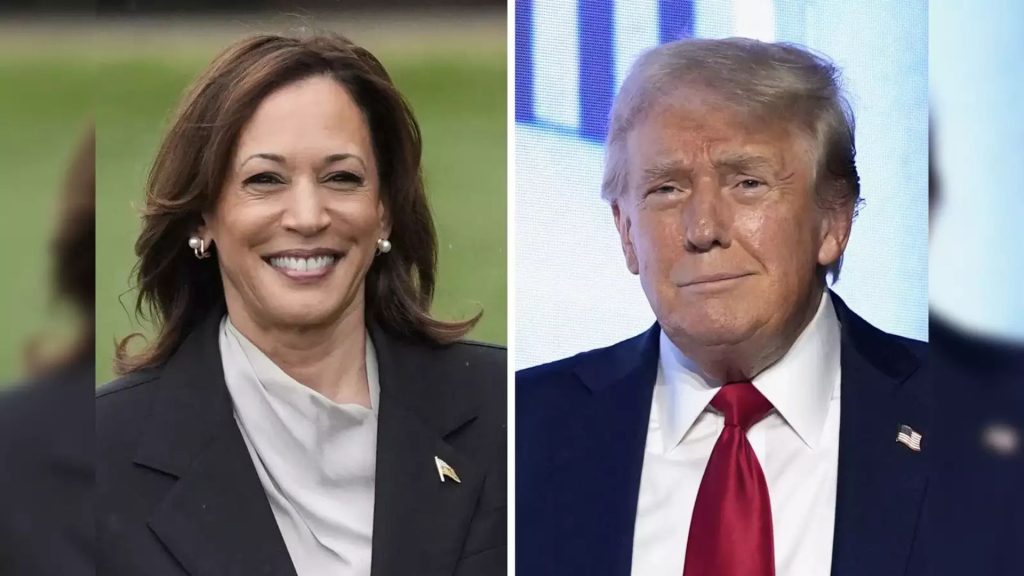
Former President Donald Trump is once again laying the groundwork to challenge the legitimacy of the upcoming 2024 election, echoing tactics he employed after the 2020 race. As Election Day approaches, he has ramped up baseless claims that Democrats are engaging in widespread voter fraud, positioning his supporters to question the integrity of the electoral process should he lose.
Trump’s rhetoric includes unsubstantiated assertions about noncitizen voting, alleged fraud related to mail-in ballots, and accusations against election officials regarding early voting practices. He has notably claimed that the only way Vice President Kamala Harris can win is through cheating. Such claims are devoid of factual support, but they serve to create an environment of distrust among his base.
Ben Ginsberg, a Republican campaign attorney and CNN contributor, expressed concern about Trump’s approach. “It’s unfortunate that he sees his path back to the White House as denigrating a basic American institution like elections,” he stated, noting that the narratives circulating in 2024 closely resemble those from the previous election.
In the aftermath of a close loss in 2020, Trump spent two months attempting to overturn the election results. With polls indicating a similarly tight race in several key battleground states, election officials are preparing for a potential barrage of misinformation, especially if outcomes hinge on a small number of votes.
Despite the frenzy surrounding these claims, election experts emphasize that most voters will likely encounter a smooth voting experience, whether participating in early voting, mail-in ballots, or casting votes on Election Day. The majority of voter fraud cases are rare and typically identified due to the rigorous safeguards in place within the electoral system.
As early voting begins, local and state officials are actively working to counteract misinformation that often spreads on social media. Justin Levitt, an election law expert, reassured voters about their power in the electoral process, asserting that if the election margin is larger than a few hundred votes, the clamor surrounding misinformation will likely be irrelevant.
However, social media remains a potent vector for conspiracy theories. Elon Musk, CEO of X (formerly Twitter), has significantly influenced the discourse by spreading false narratives that bolster Trump’s claims. Election officials report feeling overwhelmed by the sheer volume of misleading information proliferating from Musk’s platform.
Pennsylvania’s Critical Role
Pennsylvania has emerged as a pivotal battleground for the 2024 election, with heightened scrutiny over voting rules and rampant misinformation. Trump has made unfounded accusations of cheating in the state, citing incidents like the discovery of suspected fraudulent voter registration applications. While local election officials clarified that these cases exemplified the effectiveness of existing safeguards, Trump’s rhetoric continues to fuel conspiracy theories.
Misinformation about noncitizen voting has also spread, with Trump alleging that illegal immigrants are being encouraged to vote. Such assertions lack credible evidence, and experts reiterate that instances of noncitizen voting are exceedingly rare. A recent audit in Georgia revealed only a handful of noncitizens registered to vote, further highlighting the baseless nature of these claims.
As legal battles over voting regulations intensify, Trump’s allies have leveraged litigation to challenge the integrity of mail-in ballots and overseas voting processes, insisting without justification that Democrats are manipulating these systems to their advantage. Courts, however, have repeatedly dismissed these challenges, underscoring the strength of the safeguards in place.
Concerns About Election Disputes
The 2020 election aftermath prompted officials to brace for potential disruptions in 2024. Threats of violence against election workers have surged, leading to enhanced security measures at polling places, including bulletproof glass and panic buttons. The FBI has warned of the potential for domestic extremists to act on “election-related grievances,” raising alarms as Election Day approaches.
In light of these concerns, election experts and officials are keen to prevent a repeat of the chaos that followed the 2020 election. Although Congress has made attempts to strengthen electoral processes, the specter of Trump and his supporters contesting the results looms large.
Trump’s ongoing narrative that any loss would be due to electoral fraud is gaining traction among his supporters. For instance, GOP officials in Georgia have sought to enable county election authorities to refuse certification of results, a move that was ultimately blocked by a judge. Similarly, some allies suggest that electoral votes could be awarded prematurely, citing unfounded claims of disenfranchisement.
As the election nears, the Republican National Committee has mobilized thousands of poll watchers, intending to gather evidence of any alleged fraud. Ginsberg emphasized that these efforts should yield concrete evidence if any irregularities exist, rather than rhetoric devoid of substance.
In summary, Trump’s preparation for the 2024 election mirrors the tactics of 2020, relying on misinformation and a narrative of victimhood to lay the groundwork for contesting the results. As officials work to counteract this environment of doubt, the integrity of the electoral process remains a central concern as voters head to the polls.







